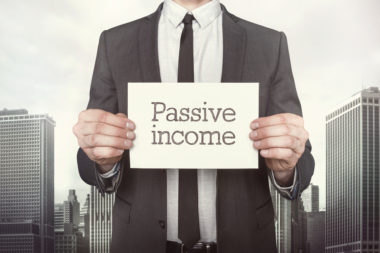If you’ve looked at 401(k) plans and pension plans, you’ve likely read about aspects of both that are appealing. On the other hand, there may be some specifics that don’t necessarily fit your retirement goals. Well, cash balance retirement plans are a different option that can satisfy needs from both of these types of plans. If you’re interested in the cash balance plan, you should know how it differs from a 401(k), pros and cons, and how you can get started with a new account.
Table of Contents
What Is a Cash Balance Pension Plan?
A cash balance plan is a retirement fund that is set up by an employer. It isn’t a private retirement fund that is funded by an individual or employee. In addition, this plan contains elements of both 401(k) plans as well as pension plans. This hybrid style retirement plan is gaining popularity as of late because of its flexibility and interesting combination of guidelines.
Cash Balance vs 401(k)
Unlike a 401(k), a cash balance plan only allows contributions from employers. There is not an option for employee contributions. However, on the other side of things, the cash balance plan operates like a defined benefits plan, in that employees are guaranteed a particular amount of retirement funding after they reach a certain age. Regardless of what is currently being contributed or what the current employer account balance is, employees are guaranteed their cash balance earnings (as long as they meet the requirements to withdraw the funds).
Cash balance plans can also project their numbers based on a person’s current salary, much like a 401(k). A percentage of what is earned by the employee is used to determine their retirement fund. Traditional pension plans often require that an employer base their projections off of an employee’s potential ending salary. What’s more, unlike a 401(k), funds can be distributed (once the individual reaches retirement age) annually, sometimes monthly, or even in a lump sum.
Also, unlike a 401(k), funds are usually taxed before they are placed into the account. This means that when you withdraw the money, you won’t have to deal with figuring out how much tax you might owe, or end up with a lighter check due to tax removal. Furthermore, since the employer is solely responsible for the funds, the employee holds no risk, as money is invested. The employer will be held liable if retirement fund investments fail for any reason. With a 401(k), the employees will be left to deal with any investments that potentially lose them money.
Benefits of a Cash Balance Plan
You do not have to contribute any of your money to a cash balance plan, the employer is solely responsible for that. You won’t have to worry about investments made with your retirement fund. Even if the employer invests poorly, they are still responsible for fulfilling your cash balance plan. What’s more, the employer can choose to add more funds to the plan based on your longevity with the company and your age. The closer you are to retirement and the older that you are, your employer may very well opt to add larger contributions to your account to help meet your retirement plan projections. This could mean that you end up with more funds than if you went with a traditional pension plan.
When you finally withdraw the funds, you won’t have to worry about paying taxes on the funds. It will have already been taken care of, so you just have to sit back and collect. Not to mention, you have several options for withdrawal of funds. You can get deposits or checks monthly, yearly, or in a lump sum. As such, these retirement funds are easy to transfer into separate accounts or to use in starting a new account. You can also rest assured knowing that your plan is protected under the Employee Retirement Income Security Act. Because these plans are more like a hybrid of a a 401(k) and a pension plan, cash balance retirement plans are federally protected. This means, that they are insured, they make sure that your employer follows strict rules of conduct, and they cannot be garnished.
Drawbacks of a Cash Balance Plan
You cannot choose how much you will contribute to a plan. In other words, your employer has complete control over how much they allocate into the cash balance plan for you. Which means, you could end up potentially getting less money placed into your account overall in the end. In addition, the retirement plans are usually based off of what your current earnings are, not what they could be once you reach retirement age. This could also equate to a lower overall earning.
However, if you are the type that likes to invest, you’ll have zero control over how your retirement funds are allocated. Your employer is in charge of how, when, and how much of your retirement funds are invested. You won’t be able to reap the rewards if their investment strategies pay off like you would in a 401(k).
Converting to a Cash Balance Plan
If your employer chooses to switch your current retirement plan over to a cash balance plan, all of your previous savings will stay in tact. They will simply transfer over to a trust retirement fund account that your employer has started. However, in order to transfer over to a retirement plan that is federally protected by the ERISA, your employer will need to meet some requirements first.
They must disclose the formula of the retirement fund to you. They must agree to share a goal of increasing your retirement fund over the life of your account. If for any reason they don’t abide by this rule or they invest improperly, they will still be responsible for recuperating your losses. You will have the right to cancel your cash balance plan at any point and still be paid out the remainder of funds in your account. These are just a few examples of the many guidelines enacted by the ERISA. So, if your employer does decide to switch, you can have peace of mind knowing they are following strict regulations.
As you can see, there are many pros and cons to a cash balance retirement plan. In many ways, this plan can be superior to traditional retirement savings and 401(k) accounts. It’s flexible for employers and guaranteed for and employees. However, if you’re someone who would prefer to have more of a hands-on approach with your retirement, if might be better to go with a 401(k), similar account, or to add another private account on top of your cash balance plan.
Image Source: https://depositphotos.com/





